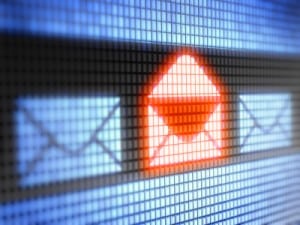You can't judge a book by its cover, but you can certainly judge the effectiveness of an emailed news release by its subject line.
Indeed, the emailing of press releases shows no signs of abating. Crafting subject lines that catch the attention of journalists and lead to clicks is an art in itself and, like any art form, it demands constant tinkering and experimentation.
To increase your chances that a journalist might read your news release emails, follow these six tips:
-
Think like a journalist: Use the newspaper and magazine headlines and blurbs that grab your attention as sources of inspiration. They are often short and capture the story in one statement while inspiring the reader to seek more information—email subject lines should do the same.
-
Tailor the benefits: Whether you're promising an inside scoop, a follow-up to a journalist's recent story or a trend that impacts their readers, make sure your subject line indicates that the email is of value to the recipient, and that it's not just part of a wide shotgun blast of company information you're sending to all your contacts.
-
Don't try to bamboozle the recipient: Unless you were actually engaged in an ongoing conversation, putting "RE:" in a subject line is manipulative. Once your recipient realizes it was only a ploy to get his or her attention, annoyance or rage will be the likely response—not coverage.
-
Be concise: Subject lines and headlines need to convey as much essential information in as few words as possible. “Avoid fluff or padding,” says Lisa Horowitz, copy chief at the L.A. Weekly. “Don't put the entire story in the headline—one of the main goals of a headline is to entice the reader, without spelling out everything the story has to offer.” The journalist should know just enough from reading the headline to determine if the story might be of interest to them and their readers.
-
Don’t overpromise: It’s tempting to exaggerate the content of a release, says Andrew Hindes, president of The In-House Writer. Avoid statements like “New Cell Phone Cures the Common Cold!” Editors and reporters are sensitive to hype and will not look favorably on a press release or pitch that doesn’t deliver on its headline or subject line, Hindes says.
-
Don't feed them spam: Certain words trigger alerts for spam filters. Examples of such words are “free,” “you,” “mortgage” and “order now,” says Barbara Ulmi, head of marketing at email solutions company GraphicMail. Complete lists of most frequently used spam keywords are available online. Excessive punctuation (like capitals and exclamation marks) also triggers spam filters. Not only that, it’s a cheap trick: It might be a matter of urgency for you, but is it really so urgent for your target?
Follow Bill Miltenberg: @bmiltenberg

